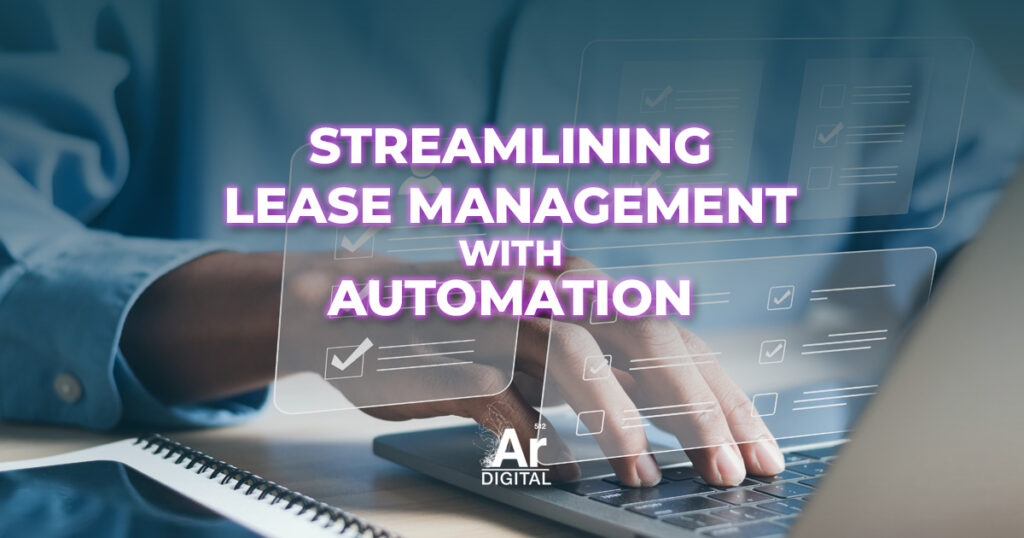The Power of Lease Management Automation with ArgonDigital
In the fast-paced world of business, managing leases efficiently is crucial for organizations across various industries. Lease management encompasses the processes involved in acquiring, tracking, and maintaining leases for properties, equipment, or vehicles. Traditionally, these tasks have been time-consuming and prone to human error. However, with the advent of automation technologies, lease management has become significantly streamlined, leading to improved efficiency and productivity.
Here, we will explore the concept of lease automation and its impact on lease management. We will also clarify the difference between lease administration and lease management, as well discuss the lease management lifecycle.
Understanding Lease Automation
Lease automation refers to the use of technology and software solutions to streamline and automate lease management processes. By leveraging automation tools, organizations can reduce manual efforts, minimize errors, and enhance overall efficiency. Lease automation solutions often include features such as lease accounting, document management, contract generation, and reporting capabilities. These technologies empower businesses to centralize lease information, track critical dates, and automate routine tasks, thereby optimizing their lease management practices.
Importance of Leasing for Manufacturers of Capital Equipment
Manufacturers of capital equipment often rely on leasing as a strategic option to expand their business. Leasing offers several advantages, including:
Capital Conservation: Leasing allows manufacturers to conserve their capital by avoiding large upfront investments. Instead of purchasing expensive equipment outright, they can lease it, enabling them to allocate their resources more effectively.
Flexibility: Leasing provides manufacturers with the flexibility to adapt to changing business needs. They can easily upgrade or replace equipment as required, ensuring they always have access to the latest technology without the burden of ownership.
Tax Benefits: Lease payments are often tax-deductible, providing financial advantages to manufacturers. This helps reduce their overall tax liability and improves their cash flow.
Improved Cash Flow: Leasing allows manufacturers to spread the cost of equipment over time through regular lease payments. This helps maintain a healthy cash flow and avoids tying up significant capital in equipment purchases.
Understanding Lease Management and Lease Administration
Although often used interchangeably, lease administration and lease management refer to distinct aspects of the overall lease process.
Lease Administration
Lease administration primarily focuses on the operational and administrative tasks related to managing leases. It involves activities such as lease document management, payment collection, lease abstraction, and maintaining lease-related records. Lease administration ensures compliance with lease terms and conditions, tracks key dates, and facilitates communication between lessors and lessees.
Lease Management
Lease management encompasses a broader scope, including both the administrative tasks and strategic decision-making related to leases. It involves analyzing lease portfolios, negotiating lease agreements, optimizing lease terms, and evaluating the financial impact of leases on the organization. Lease management aims to maximize the value of leases, minimize risks, and align lease strategies with business goals.
The Lease Management Lifecycle
The lease management lifecycle comprises various stages that organizations go through to effectively manage their leases. These stages typically include:
Lease Acquisition: The first stage involves identifying the need for a lease, searching for suitable properties or equipment, and negotiating lease terms. Automation tools can streamline this process by facilitating lease document creation, standardizing negotiation workflows, and providing quick access to lease templates.
Lease Execution: Once the lease terms are finalized, the lease execution stage involves signing the lease agreement and ensuring all necessary documentation is in place. Automation solutions simplify this stage by digitizing the document management process, enabling electronic signatures, and automating approval workflows.
Lease Tracking and Maintenance: During the lease term, organizations need to effectively track critical dates, such as lease expiration and renewal options. Automation tools provide reminders and notifications, ensuring no important dates are missed. Additionally, maintenance and repair schedules can be tracked, ensuring compliance with lease requirements and minimizing equipment downtime.
Lease Reporting and Analysis: The final stage involves generating comprehensive reports and analyzing lease data to gain insights into lease performance, financial obligations, and portfolio optimization. Automation solutions enable easy generation of standardized reports, consolidation of lease data, and analysis of key metrics, facilitating informed decision-making.
Improving Lease Management with Automation
Automation has revolutionized lease management by simplifying complex processes, minimizing errors, and enhancing productivity. By leveraging lease automation solutions, organizations can streamline lease management workflows, improve compliance, and make data-driven decisions. Furthermore, manufacturers of capital equipment can benefit from leasing as a strategic option to conserve capital, achieve flexibility, and enhance their overall business growth.
As organizations continue to embrace automation technologies, the future of lease management looks incredibly promising, offering increased efficiency and optimization in an ever-evolving business landscape.




